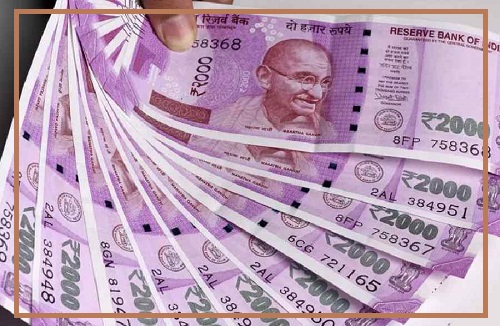Since the Reserve Bank of India (RBI) announced the discontinuation of the 2000 rupee note, a recent survey has shed light on the various ways people are utilizing these notes.
The survey, conducted by the destination-based social network Public App across multiple states in India, reveals that individuals predominantly use the 2000 rupee notes to purchase fuel, jewelry, and groceries.
According to the pan-India survey, 55% of respondents plan to deposit their 2000 rupee notes in banks, while 23% intend to spend them and 22% plan to exchange them at banks.
The findings indicate that the majority of individuals surveyed are proactively managing their 2000 rupee notes before the deadline.
The RBI has provided individuals with time until September 30 to deposit or exchange these notes at banks.
Withdrawal of the 2000 Rupee Note Announced
On May 19, the RBI announced the withdrawal of the 2000 rupee notes from circulation. Despite this decision, people have been given several months to either deposit the notes in their accounts or exchange them at banks.
Nearly Half of the Notes Returned in Two Weeks
In recent communication, the RBI revealed that approximately half of the 2000 rupee notes in circulation had been returned within a span of two weeks.
The survey conducted by Public App involved the opinions of over one lakh individuals from 22 states.
It highlights that people are using the 2000 rupee notes for purchasing fuel (petrol and diesel), gold and jewelry, as well as everyday groceries.
Smooth Exchanges Reported
When asked if they encountered any difficulties while exchanging their notes, 61% of the surveyed participants stated that they faced no issues during the process.
Kerala had the highest percentage of individuals (75%) reporting a smooth experience, followed by Andhra Pradesh (53%) and Tamil Nadu (50%).
However, 42% of respondents mentioned that local vendors declined to accept the 2000 rupee notes.
Key Survey Findings
The survey also revealed interesting opinions from the participants.
Approximately 51% of respondents expressed that they wished for more time to exchange their notes, while 44% believed that the daily limit for note exchange should exceed 20,000 rupees.
As the deadline approaches, individuals continue to manage their 2000 rupee notes in a variety of ways.
The survey results provide valuable insights into the usage patterns and preferences of the Indian population during this transitional period.
